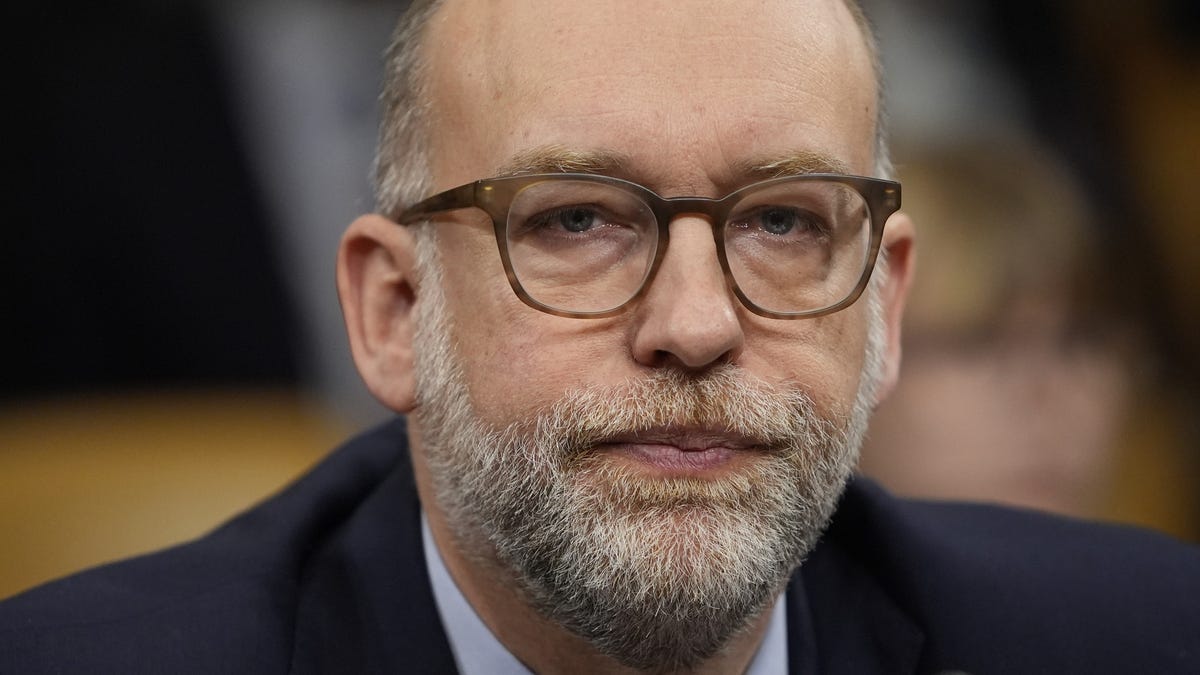EPA will try again in another round of offers to convince its employees to take deferred resignations or early retirements.
What do Lee Zeldin’s EPA rollbacks mean for Americans?
Lee Zeldin announced the Environmental Protection agency would roll back regulations aimed fighting climate change and pollution.
Employees at the Environmental Protection Agency got another nudge toward the door in an email offering a second chance at voluntary retirement or deferred resignation.
The agency is encouraging thousands of workers who remain after several rounds of buyouts and layoffs to voluntarily leave the agency, according to an April 28 email received by USA TODAY.
The ongoing staff reductions are part of a sweeping effort by President Donald Trump’s administration to slash the size of the federal work force and reduce federal spending and the federal deficit.
The EPA, charged with protecting human health and the environment since 1970, has already reduced its staff by more than 1,000 workers, Administrator Lee Zeldin said previously. That includes a reported 388 probationary employees terminated in February and hundreds of employees who accepted the administration’s initial deferred resignation, known as the Fork-in-the-Road program.
It’s unknown how many EPA employees accepted the Fork-in-the-Road or the voluntary retirement offers. Before the reductions started, the agency had an estimated work force of roughly 15,000.
On April 22, reduction-in-force letters were sent to nearly 200 employees of its Office of Environmental Justice and External Civil Rights, notifying them that terminations were scheduled to take effect July 31.
A union that represents more than 8,400 EPA employees is pushing back against those staff reductions.
“Decimating our agency and Environmental Justice workforce goes against our oath to protect human health and to keep our planet healthy and habitable for future generations,” Joyce Howell, executive vice president of AFGE Council 238, previously told Reuters.
The two departure programs are being offered to most employees, with some exclusions, according to the April 28 notice. It excludes workers in the offices of the chief financial officer, mission support, inspector general and enforcement and compliance assurance, employees who have received a notice about a planned reduction in force, and those in a few specific positions such as law enforcement, national security or public safety, according to the announcement.
The window to accept one of the two options will be open until midnight on May 5, according to the letter. Employees who accept the deferred resignations must leave work no later than June 16, unless there’s a “mission essential” need for the employee to stay longer.
Employees, including full-time and part-time employees across a broad range of positions, may opt to resign or retire. The Voluntary Early Retirement Authority (known as VERA) temporarily lowers the age and service requirements for retirement, but the employees must be at least 50 with 20 years of service or any age with 25 years of federal service, according to the letter.
The letter to employees refers to Feb. 26 guidance from Russell Vought, director of the Office of Management and Budget, on implementing the Department of Government Efficiency’s “workforce optimization initiative.”
“The federal government is costly, inefficient, and deeply in debt,” Vought stated email, sent to the heads of all executive departments and agencies. “At the same time, it is not producing results for the American public. Instead, tax dollars are being siphoned off to fund unproductive and unnecessary programs that benefit radical interest groups while hurting hardworking American citizens.”
Vought, a key architect of the Heritage Foundation’s “Project 2025,” served as the head of the federal budget office during Trump’s first term.
Vought previously criticized federal bureaucrats in private speeches in 2023 and 2024, particularly the EPA, according to reporting by the nonprofit investigative news site Pro Publica. In a video Pro Publica obtained, Vought stated: “We want their funding to be shut down so that the EPA can’t do all of the rules against our energy industry because they have no bandwidth financially to do so. We want to put them in trauma.”
Dinah Voyles Pulver, a national correspondent for USA TODAY, has covered the environment, climate change and other news for decades. Reach her at [email protected] or @dinahvp on Bluesky or X or dinahvp.77 on Signal.
